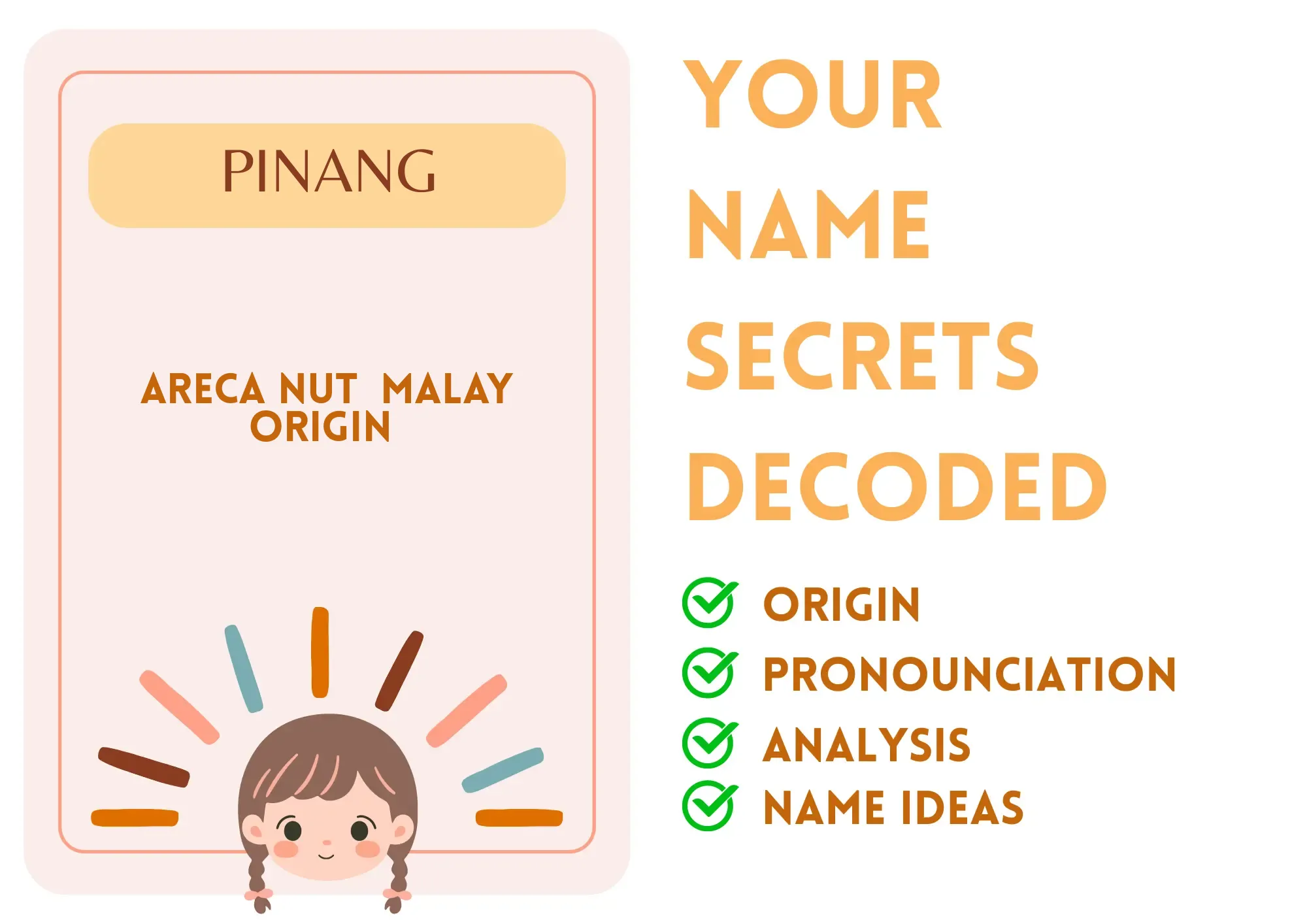
Pinang
Pinang is a charming name with rich cultural significance found predominantly in Southeast Asia, especially in Malaysia and Indonesia. It derives from the Malay word for the "areca nut" (Betel palm), which is culturally significant and often associated with hospitality and ceremonial practices in Malay culture. Though it can be used for both genders, it is most commonly given to females.
While less common in Western cultures, Pinang represents a strong connection to one’s heritage and cultural roots, making it a meaningful choice for parents wishing to preserve their cultural identity.
In terms of sentiment, Pinang is generally perceived as a unique name with a pleasant sound and a positive association with the natural world and traditional practices. Its simple structure makes it easy to write and pronounce, though some might struggle with the unique tonal quality.
Basic Information
Gender: Girl
Sounds Like: pee-nang
Pronunciation Explanation: The name is pronounced with a clear emphasis on both syllables, with the first syllable sounding like 'pee' and the second sounding like 'nahng'.
Summary and Meaning
Meaning: areca nut (Malay origin)
Origin: The name Pinang has Malay origins, deeply intertwined with the cultural practices of Southeast Asia.
Usage: Pinang is traditionally a feminine name, but it can also be used for males in certain contexts.
Name Number (Chaldean)
Name Number (Pythagorean)
Religious and Cultural Significance
Religion: Islam
Background: Given its significant presence in Southeast Asia, Pinang resonates within Muslim communities, reflecting traditional values and heritage.
Cultural Significance: In Malay culture, the areca nut is often chewed with betel leaves during social gatherings, symbolizing hospitality and community bonding. Naming a child Pinang may signify a wish for openness and warmth.
Historical Significance: The practice of chewing the betel nut has been a historical tradition in Southeast Asia for centuries, often accompanying ceremonies and social gatherings, thus embedding the name Pinang within this cultural narrative.
Popular Culture
Literature and Mythology: While Pinang may not feature prominently in mainstream literature, it often appears in local folklore and traditional stories within Malay culture.
Movies and Television: The name Pinang may occasionally be found in films produced in Malaysia and Indonesia, often embodying themes of tradition and cultural identity.
Feelings and Perceptions
Perception: Pinang is viewed positively, often associated with warmth, hospitality, and a strong cultural connection. It evokes feelings of familiarity, kindness, and community.
Positive Feelings: Unique, warm, traditional, inviting.
Negative Feelings: Some may find it difficult to pronounce or unfamiliar, and may associate it with a small geographic area.
Practical Considerations
Ease of Writing and Calling: Pinang is straightforward to write and pronounce, consisting of six letters and two syllables, making it memorable and easy to call.
Common Typos and Misspellings: Pinangh,Pinnang,Pinnangh,Pingang
Common Nicknames: Pina,Nang,Pin
Compatibility Analysis
Famous Persons Named Pinang
No results found for Pinang.
Related Names
Similar Sounding Names:
Rina,Nina,Hina,Lina